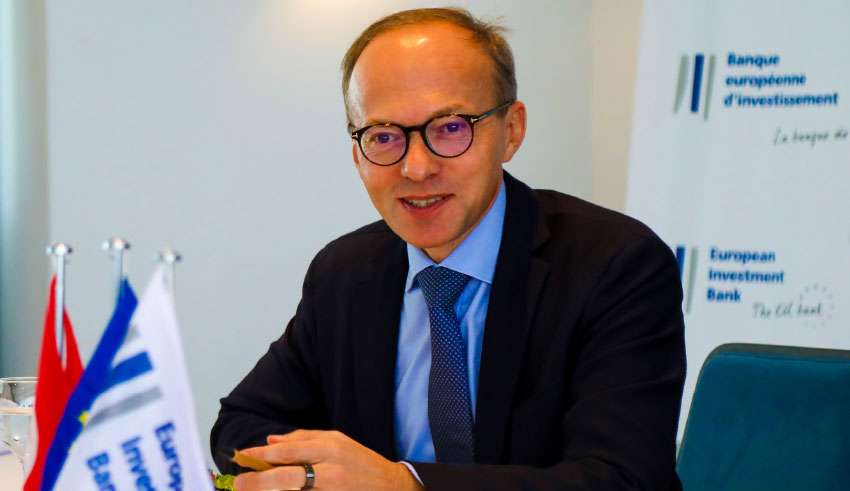EU bank boasts Tunisia support but questions linger

Jean-Luc Revereault, outgoing head of the European Investment Bank (EIB) office in Tunisia, claimed Tunisia remains of great importance to Brussels and ranks among the top beneficiaries of EU support, as reported by Tunisie Numerique on July 31st.
This comes as no surprise considering Tunisia’s well-documented financial problems accompanied with the growing foreign investment and alliances with European countries.
Speaking to a private radio station, Revereault used a farewell interview to reassert the EU’s financial commitment to the country, just as he wrapped up his term. His remarks, while glowing, arrive with more than a hint of legacy-branding.
Over five years, Revereault worked under six successive Tunisian governments, a fact he framed as a challenge to efficiency, though critics might see this as a convenient shield for delayed or underperforming projects.
He pointed to €1 billion in EIB-backed investments, primarily from 2019, coinciding with what he called a turning point in Tunisia’s democratic transition. He singled out support for the high-speed rail authority, the electricity and gas company (STEG), and national highway expansions. He also mentioned education initiatives, including school refurbishments, and wheat purchase financing, suggesting the EIB’s reach extends beyond infrastructure into social provision.
But beneath the surface of these achievements lies a recurring tension: Revereault blamed project delays on agreements signed too hastily and without proper feasibility studies. This admission raises questions about the quality of oversight and whether the urgency to disburse funds often eclipses long-term sustainability.
He also spotlighted the €300 million granted to the Tunis-Palermo electricity link as a major win, not to mention the growing ties between Italy and Tunisia, branding it vital to Tunisia’s energy security, though some critics see such projects as designed more to serve European energy diversification than Tunisian sovereignty.
Furthermore, Revereault noted €400 million had been allocated to small and medium-sized businesses, as well as investments likely to be touted as signs of regional development, but perhaps more effective on paper than in practice.
Tunisie Numerique, Maghrebi.org
Want to chase the pulse of North Africa?
Subscribe to receive our FREE weekly PDF magazine












